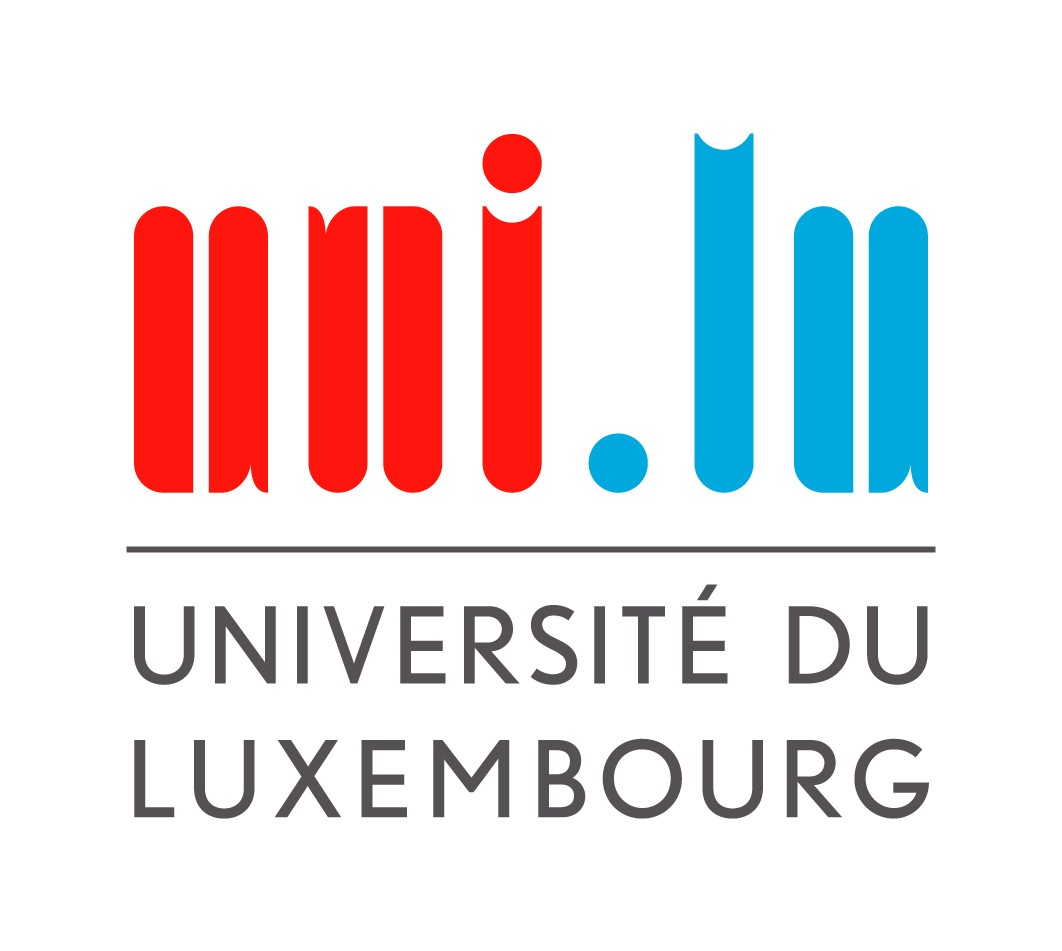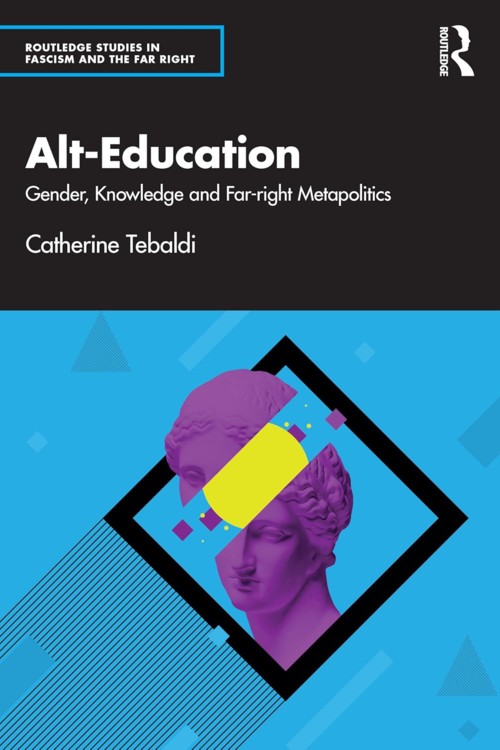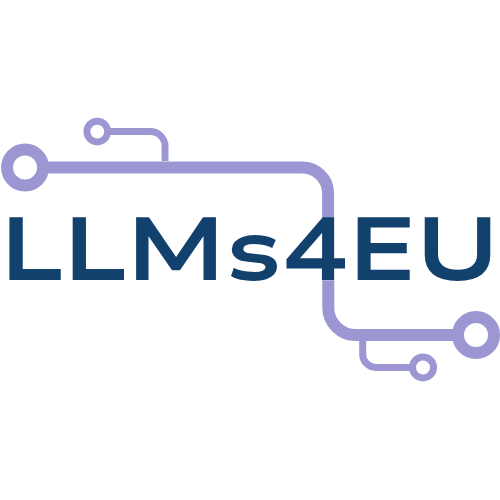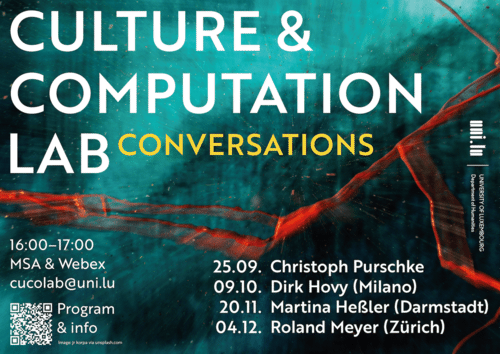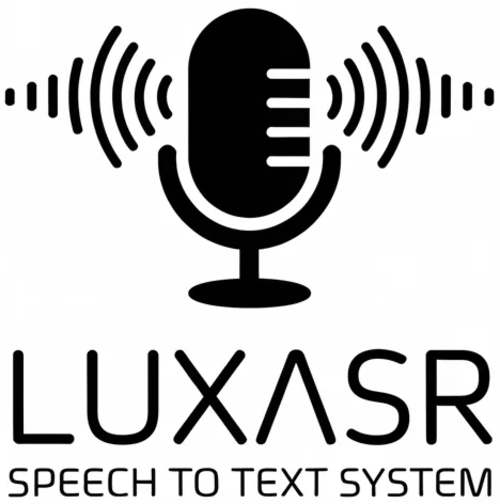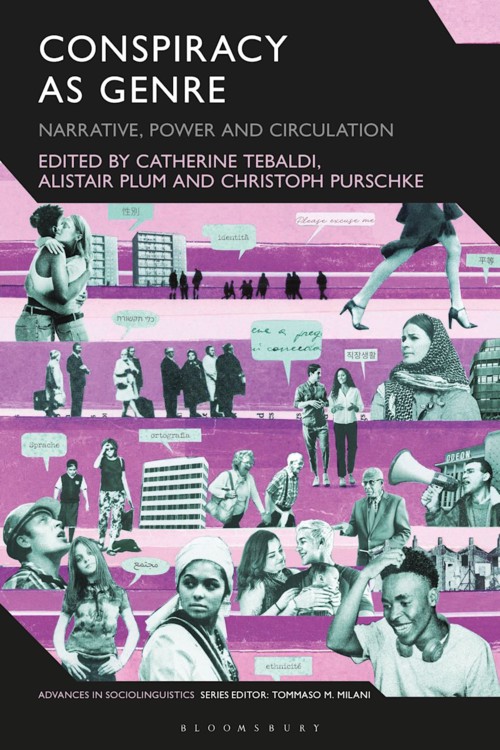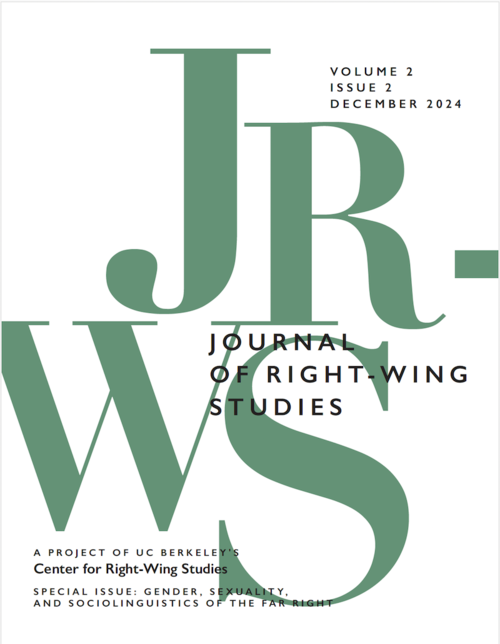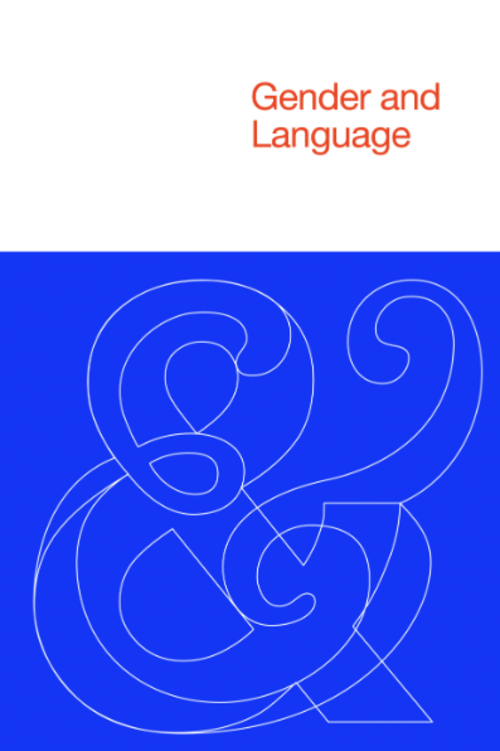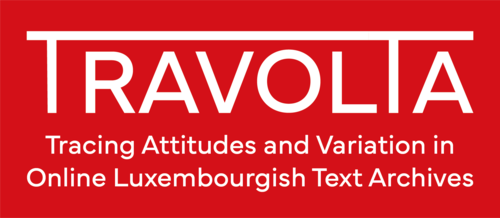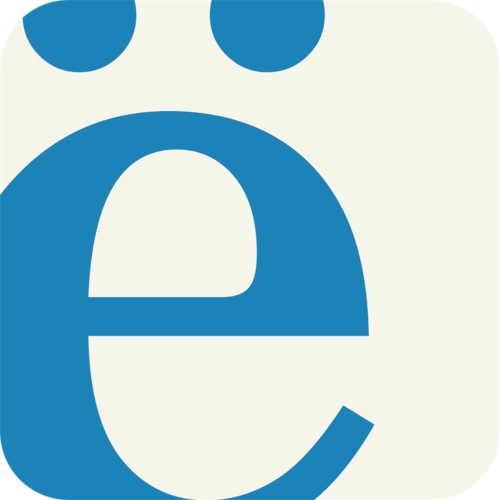Welcome to the Culture & Computation Lab! We are a cross-departmental research unit hosted at the Department of Humanities of the University of Luxembourg. As such, we form part of the university’s focus area Digital & Media Transformation and help to build a research axis in Digital Humanities.
Our main mission is to foster collaboration among scholars of the department, to promote research in Computational Cultural Studies as a comprehensive approach to the application of computational methods in the humanities, and to advance the analysis of digital culture from a scholarly point of view. In doing so, we are driven by a critical curiosity and open to everyone.
The lab serves four primary functions:
- Thematic figurehead: It positions & promotes humanities research at the university in the national and international research landscape.
- Research support: It provides infrastructure as well as technical and development assistance for projects and researchers in the department.
- Knowledge transmission: It offers training and teaching in digital methods to scholars and students, and the scientific community beyond the university.
- Outreach & networking: It functions as a collaboration hub for incoming researchers, societal stakeholders, and industry partners in terms of project development and funding.
Thematic profile
The lab’s central starting point is a holistic analysis of the complex interrelations between culture and digitality. In our work, we establish a close link between developing technical solutions to analyze (digital) culture on a large scale and thoroughly reflecting on the impact that machine learning and digitality have on culture as a whole, including academic research practices. The Department of Humanities, with its various scholarly disciplines (including culture theory, history, literature, linguistics, media studies, and philosophy), offers an ideal academic environment for this endeavor.
Focus areas
During its startup phase, the lab focuses on three thematic axes:
- Critical media studies: We explore innovative, mixed-methods approaches to studying digital and media practices, combining scholarly analysis with computational and data-driven methods. Our aim is to broaden the analytical scope of the humanities and emphasize their vital role in understanding digital media ecologies. A key focus of our work is examining new right-wing ideologies and fringe epistemologies.
- Cultural language technology: We develop computational tools for under-researched languages like Luxembourgish by harnessing large language models (LLMs) and AI applications for various tasks. We highlight the essential role of linguistics in natural language processing (NLP) and advocate for cultural diversity in language technology. This includes researching how cultural traits are represented in LLMs (“cultural reasoning“).
- Digital sociality studies: From a culture- and media-theoretical point of view, we study the effects of digital practices and algorithmic sociality on the lifeworld. This includes examining concepts of social presence and individual self-assertion, updating media theory approaches under social and digital auspices, as well as exploring the fundamental role of language in orienting oneself in the digitally enriched lifeworld.
Members
As a cross-departmental unit, the lab is supported by all researchers and institutes within the humanities department. For organizational purposes, we have established a steering group consisting of one representative from each institute and coordinated by a Head of Lab.
Head of Lab: Christoph Purschke
Lab personnel: Alistair Plum (Postdoc, Computational Linguistics), Catherine Tebaldi (Postdoc, Linguistic Anthropology)
Associate members: Ioana Duta-Visescu (Postdoc, ULIDE)
Steering group
DHUM representatives: Anne-Marie Millim (English Studies), Ingrid de Saint-Georges (Multilingualism), Martin Uhrmacher (History), Peter Gilles (Luxembourg Studies), Thomas Raleigh (Philosophy), Till Dembeck (German Studies), Tonia Raus (Romance Studies, Media and Arts)
Additional members: Demival Vasquez Filho (liaison with the C2DH), Johannes Pause (liaison with the ULIDE), Martin Theobald (liaison with the Department of Computer Science), Monique Weis (Head of the HUM), Sascha Helsper (liaison with the MEDIACentre)
Cooperation
As a transversal research unit and thematic figure head, our approach to Computational Cultural Studies is driven by a strong interest in interdisciplinary research. Therefore, we cooperate with various partners at the university level, most notably the Center for Contemporary and Digital History (C2DH), the Department of Computer Science (DCS), the MEDIACentre (FHSE) and Melusina Press. We also actively seek cooperation with societal stakeholders (the National Libraray, the House of Representatives) and industry partners (RTL Media) to establish sustainable relations for innovative research in Computational Cultural Studies from a scholarly point of view.
We are building international partnerships to advance our research and represent the University of Luxembourg in the research landscape. Our strategic partnerships include:
- The Alliance for Language Technologies (ALT-EDIC), a European Digital Infrastructure Consortium supporting the development of language technologies
